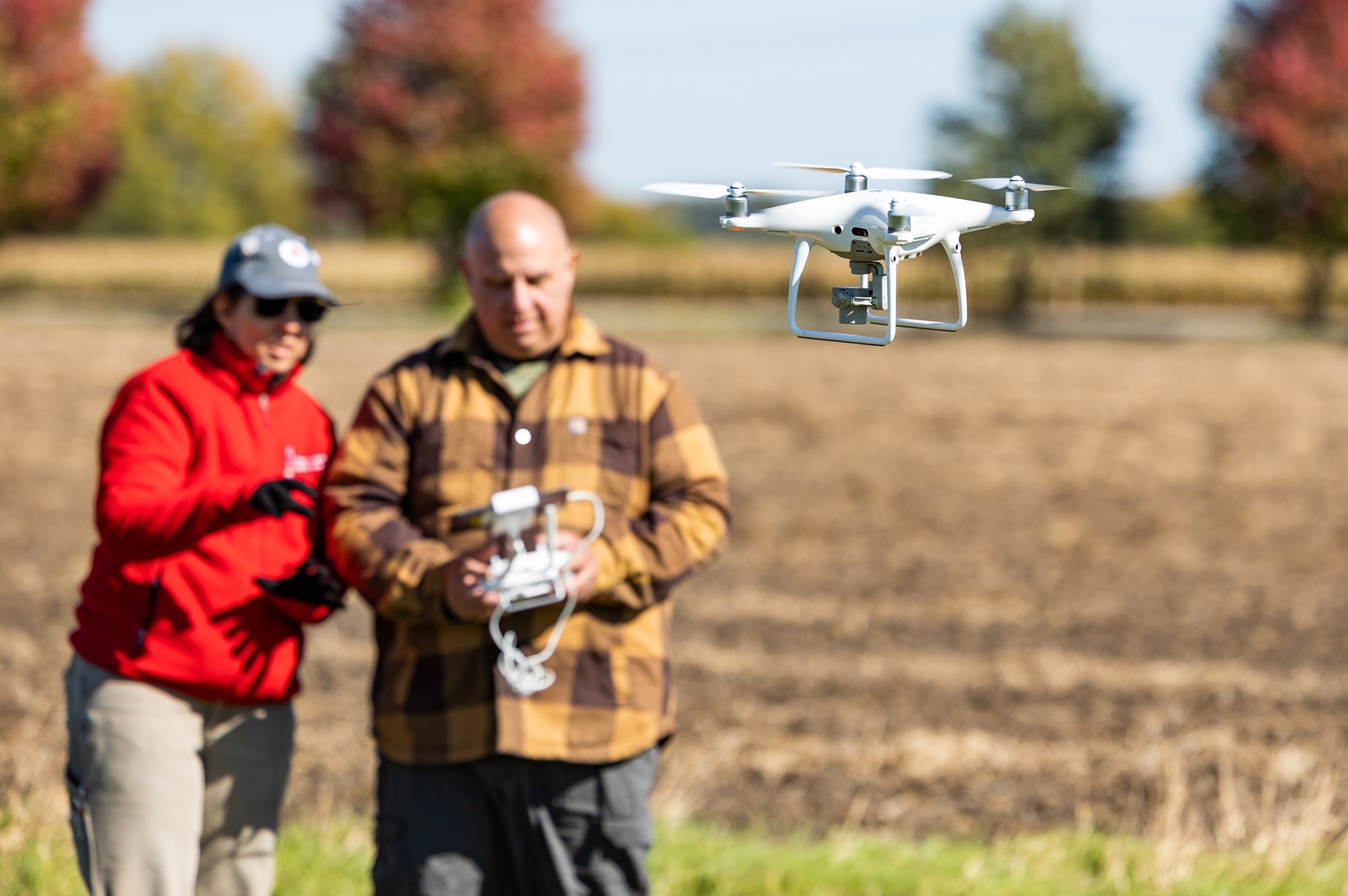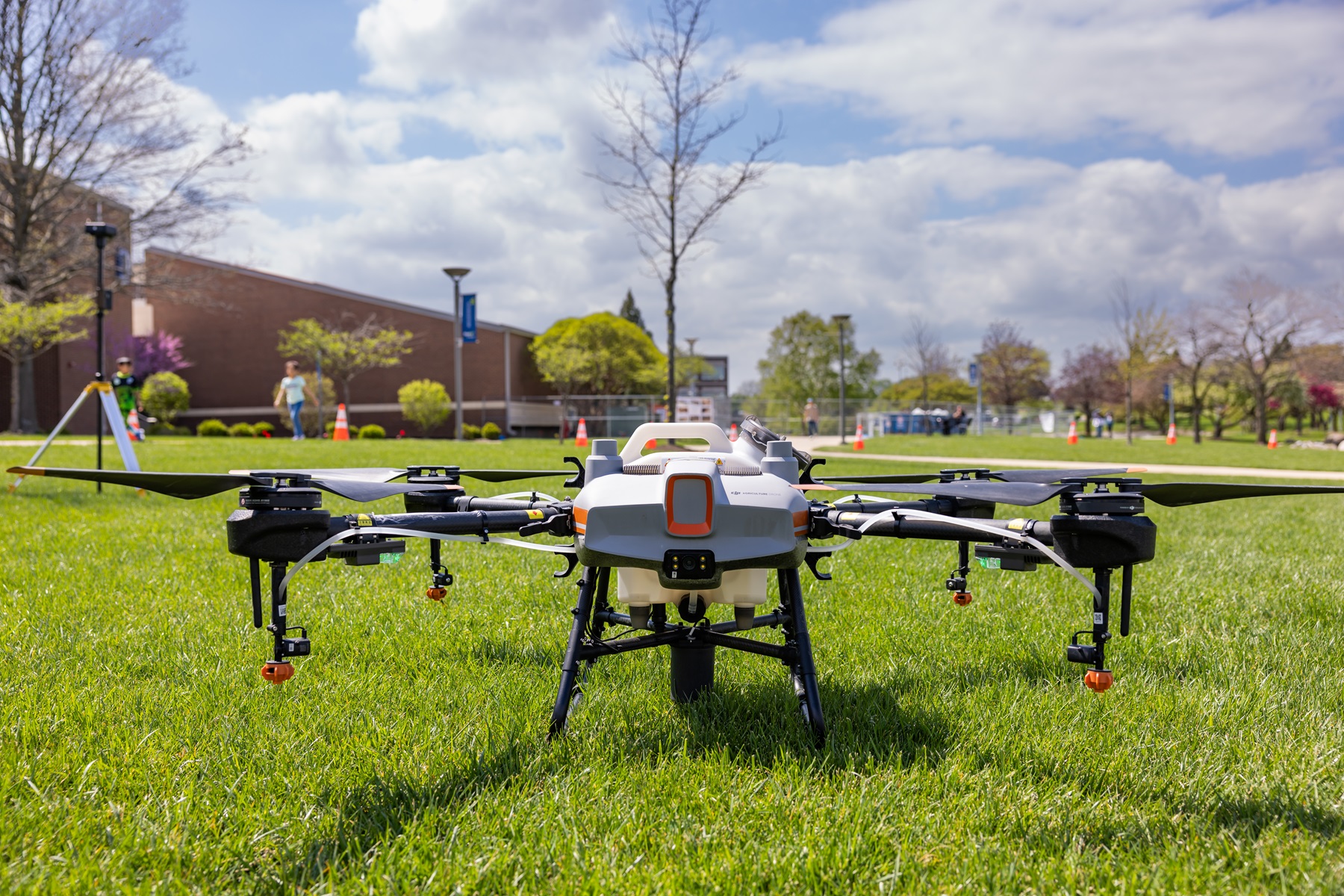Harper College will be closed on Wednesday, February 12 in observance of Lincoln's Day.

 Harper College students can begin earning two new certificates this fall, with the
start of the Hospitality and Tourism Management Certificate and Drone Essentials Certificate programs.
Harper College students can begin earning two new certificates this fall, with the
start of the Hospitality and Tourism Management Certificate and Drone Essentials Certificate programs.
The college created both programs, new for the fall 2024 semester, to prepare students for employment in growing industries. Rooted in rapidly advancing technology, the use of drones (small uncrewed aerial systems or sUAS) has become widespread among a variety of fields and is projected to continue its rapid expansion. Likewise, there is no shortage of jobs in hospitality and tourism with the World Tourism Organization projecting steady growth.
“Tourism encompasses all of the hospitality sectors and connects them to make a dynamic industry,” said Dr. Janette Roy, an assistant professor and the program coordinator for Harper’s Hospitality Management program. “There is someone behind the scenes putting together each piece of the experience for our shared customers in the meetings, incentives, conventions and exhibitions (MICE) sector.”
To train those behind-the-scenes personnel, Roy led the creation of the Hospitality and Tourism Management Certificate courses from scratch. Harper is renowned for its Hospitality Management programs, especially the culinary arts and food service offerings, which include a selection of certificate and degree options.
“Harper is responding to the skills and competency needs of future hires for the northwest suburban hospitality business community by building hotel and tourism-oriented offerings into programs that are just as strong as the culinary arts programs,” Roy said, acknowledging that she’s heard from local leaders in the hospitality industry. “In response to calls for more hotel-related classes, the new Hospitality and Tourism Certificate is designed to meet future demand and train the staff who work behind the scenes to make it happen in hotels, convention centers and more.”
When creating the six new classes that make up the 18-credit Hospitality and Tourism Management Certificate, Roy drew on her decades of experience in the hospitality industry (including roles with Sofitel Hotels and McCormick Place) and in education (she was the course lead for hospitality management at Purdue University before arriving at Harper in 2020). Roy also incorporated feedback from leaders at the Meet Chicago Northwest tourism bureau to ensure the courses reflect current industry terminology and include the appropriate training.
When discussing the benefits of the new program, Roy highlighted that students can complete the certificate within one year and the amount of practical knowledge available within the courses. She also discussed a couple of innovative courses – Sustainable Tourism and Cultural Tourism – that will bring greater context to students’ perspectives on the hospitality and tourism industries.
“The Sustainable Tourism course provides students with comprehensive approaches to how tourism can be managed in a way that respects the environment, supports communities and preserves cultural heritage for future generations,” Roy said. “These classes are designed to open people’s minds to how important their own city is and the things we have to preserve so that people can keep coming back to experience them.”
While the Hospitality and Tourism Management Certificate consists of entirely new courses, the Drone Essentials Certificate was built from courses that have existed since 2021 (as part of the larger Drone Technology and Applications Certificate). The new certificate includes three courses for a seven-credit program that centers on drone operations and data acquisition.
 The Drone Essentials Certificate is a subset of Harper’s comprehensive drone program, which offers state-of-the-art facilities, education in multi-rotor and fixed-wing
drones, and the ability to train on simulators and in real-world settings. The Federal
Aviation Administration selected the program for its Unmanned Aircraft Systems-Collegiate Training Initiative.
The Drone Essentials Certificate is a subset of Harper’s comprehensive drone program, which offers state-of-the-art facilities, education in multi-rotor and fixed-wing
drones, and the ability to train on simulators and in real-world settings. The Federal
Aviation Administration selected the program for its Unmanned Aircraft Systems-Collegiate Training Initiative.
“As Harper’s drone program has evolved, there were students who expressed interest in a well-rounded introduction to drone operations,” said Mukila Maitha, professor and coordinator of the program. “We also saw that companies that employ drone operators are seeking those with fundamental skills. The way we have structured the program now, students can get a credential for those skills and then specialize if they choose.”
Indeed, the new Drone Essentials Certificate stacks into the Drone Technology and Applications Certificate, whereby a student can complete the first credential, then pursue the second one by concentrating on subjects that suit their career interests. Some may focus on GIS (Geographic Information Systems) or geospatial technology by enrolling in geospatial courses. Others can concentrate on photo and video applications by taking media production classes.
“The students are well-served by having the operational fundamentals in place before they specialize,” Maitha said. “We have a significant number of students who are being reskilled either for their present job or for a new career they are pursuing.”
The career opportunities are certainly there. Research and Markets projects that the small drones market will grow from $5.8 billion in 2023 to $10.4 Billion by 2030.
Because so many students are seeking to add skills for their current or future roles, course schedules are planned with working professionals in mind. Classes are shorter (four, five or eight weeks) and take place online and on Saturday mornings. The Drone Essentials Certificate can be completed within two semesters.
“Drone technology is used in so many different fields it’s important to give students flexibility and a solid foundation,” Maitha said. “Students have different skills and talents; they can follow the path that works for them.”